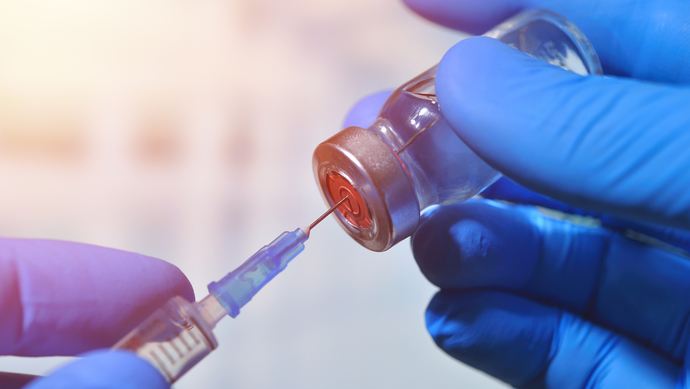Indian Health Minister Harsh Vardhan said on the 20th local time that India is about to approve the first coronavirus vaccine and plans to start vaccination in January next year, covering priority groups of about 300 million people first.
In an interview with First Financial Reporter, Liu Zongyi, Secretary-General of the China-South Asia Cooperation Research Center of the Shanghai Institute of International Studies, said that India is the world’s largest vaccine producer in terms of production capacity, and can produce enough vaccines for the Indian market.
At the same time, Liu Zongyi said that India had a large-scale national vaccination program before, and compared with Western countries, the resistance of Indian people to vaccines was not so high.
India Vaccine Plan
India Vaccine Plan According to the COVID-19 statistics released by the Ministry of Health of India on the 19th, the cumulative number of confirmed cases in India has exceeded 10 million, so far, India has become the second country after the United States to surpass 10 million confirmed cases.
However, India’s government committee in charge of forecasting the COVID-19 epidemic estimates that 60% of the country’s more than 1.3 billion people have been infected or infected with the novel coronavirus.
300 million priority vaccinations
Waldan also revealed at the meeting on the 19th that India will soon approve the emergency use authorization of vaccines. In the past, the Ministry of Health of India generally took about 90 days to decide whether to approve such applications.
India plans to vaccinate 300 million people against the coronavirus first between January and August 2021.
The priority of vaccination is 10 million medical workers, followed by 20 million police, military personnel, municipal workers and other front-line workers, followed by 270 million citizens over 50 years old and other vulnerable groups.
The Indian government said it expected to take more than a year to complete the vaccination of the majority of the 1.35 billion people.
At present, at least three COVID-19 vaccines have applied for emergency use authorization in India.
The U.S. Pfizer vaccine applied to Indian regulators in early December.
However, according to Indian media reports, due to the low proportion of Asians in the clinical trial of Pfizer vaccine, India may require Pfizer to conduct clinical trials in India, which reduces the possibility that Pfizer’s coronavirus vaccine will become the first approved vaccine in India.
Since then, the British pharmaceutical company AstraZeneca’s coronavirus vaccine Covishield, which is produced in cooperation with the Indian Serum Research Institute, and the vaccine Covaxin, which is developed by Indian pharmaceutical company Balat Biotechnology Covaxin, in cooperation with the Indian Medical Research Council (ICMR), applied for tightness on December 7. Urgent use authorization.
Covishield is the Indian version of the AstraZeneca coronavirus vaccine.
Based on the reports it provided, the vaccine has been conducted in four clinical studies (two in the United Kingdom and one in Brazil and one in India) and showed that the vaccine is very effective in immune efficacy. AstraZeneca’s vaccine is expected to be approved in the UK before the end of this year or early next year. Previously, India had said that if AstraZeneca was approved in the UK, India would soon approve its emergency use authorization.
The Indian Serum Institute, the world’s largest vaccine manufacturer, has told the media that the Institute expects to produce a total of 1 billion doses of COVID-19 vaccine by the end of 2021.
However, Liu Zongyi told the First Financial Reporter that many of these vaccines are produced for Western enterprises, and most of them need to be used for export. India does not have complete autonomy in the distribution of these vaccines.
In addition, India has at least six candidate vaccines undergoing clinical trials at different stages. Liu Zongyi said that India regards the independent research and development of the coronavirus vaccine as an important part of “Made in India” and has been promoting vaccine research and development with independent intellectual property rights, with the aim of allowing Indians to use their own developed vaccines.
Facing multiple challenges
However, there has been concern about the safety and effectiveness of local vaccines in India.
Among them, the case of Anil Vij, Minister of Home Affairs and Health of Haryana, India, is of greatest concern.
He announced on Twitter in early December that he had tested positive for the coronavirus, and he had just been vaccinated against Covaxin against the novel coronavirus on November 20. Virgil’s test results raise doubts about the efficacy of the vaccine.
However, Bharat Biotechnology explained that Virji was a volunteer for the third phase of the vaccine.
The vaccine was divided into two doses and did not work until the whole injection process was completed, while Vigi only completed the first injection, during which there was no protective effect.
Meanwhile, Bharat also said that the vaccine trial took a random “double blind test”, that is, half of the volunteers were injected with the vaccine, while the other half were injected with placebos that did not have practical effect.
If you want to find out whether Viggie was injected with a vaccine or a placebo, it needs to be blinded after the trial.
At the same time, India also faces multiple challenges in promoting the distribution of coronavirus vaccines.
Vaccines are very strict on transportation and storage conditions, requiring a strong industrial chain coordination, covering many fields such as pharmaceuticals, logistics and refrigeration.
Indian epidemiologist Shahid Jameel told the Indian media that the biggest challenge is cold chain management.
If the coronavirus vaccine needs to be stored at minus 20 degrees Celsius to minus 70 degrees Celsius, India will have very limited storage capacity, let alone distribute it all over the country. He suggested that India should use vaccines that can be stored and transported at 4 to 10 degrees Celsius to the extent possible.



